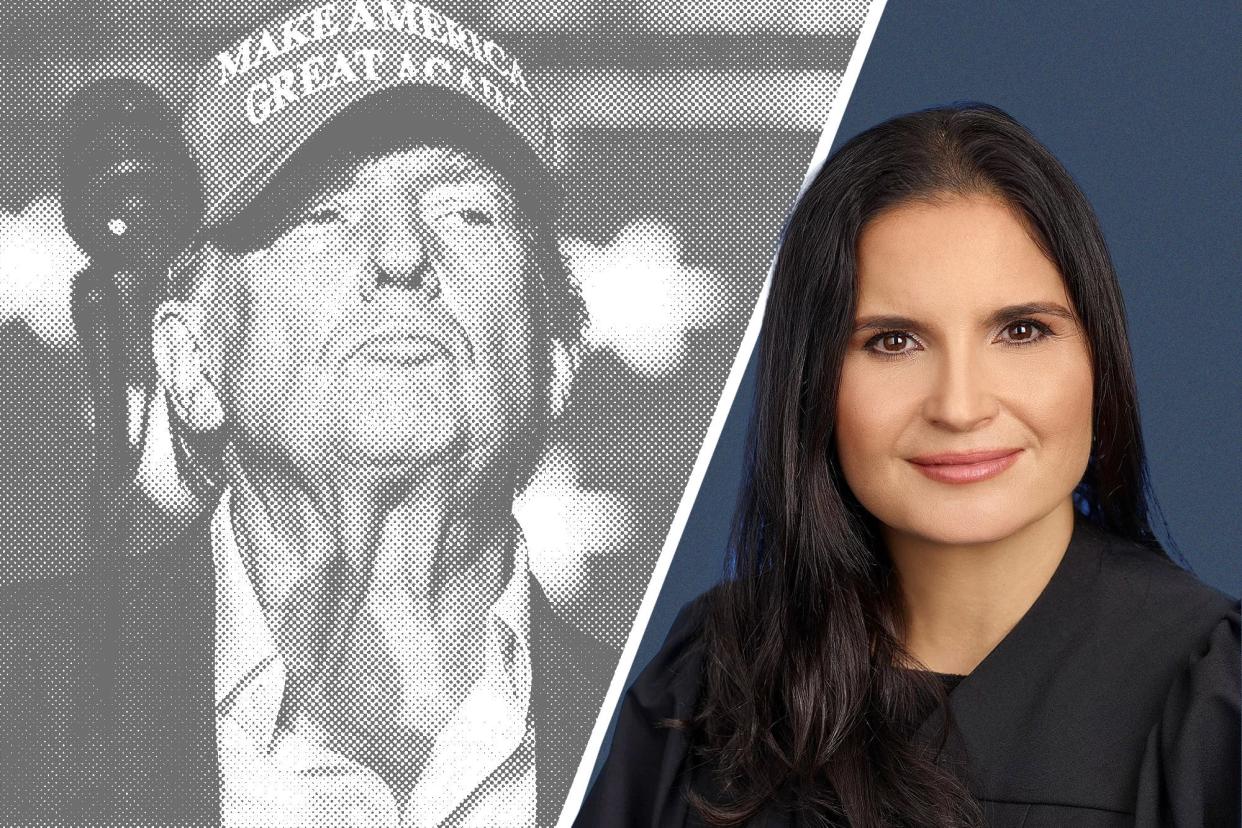Wow, Aileen Cannon Really Dismissed the Classified Documents Case!

- Oops!Something went wrong.Please try again later.
- Oops!Something went wrong.Please try again later.
Donald Trump has been convicted of 34 felony counts in the New York hush money case—but there’s a lengthy appeals process ahead. And what ever happened to the other three cases against him—Jack Smith’s federal election interference and classified documents cases, and Fani Willis’ Georgia election interference case? All three have hit various roadblocks. To make it easier to follow all of Trump’s ongoing legal entanglements, each Monday, we’ll keep you updated on the latest developments in Keeping Up With the Trump Trials.
In a stunning move, Judge Aileen Cannon completely dismissed the federal classified documents case against the former president, arguing that Jack Smith’s appointment as special prosecutor violated the Constitution. Meanwhile, Trump’s lawyers are pushing for a judge to vacate his conviction in the New York hush money case. And according to a report in the Guardian, they’re going to try to block hearings in Smith’s federal election interference case that could surface potentially damaging information about Trump before the election.
In a nearly 100-page order issued Monday morning, Cannon states that special counsel Jack Smith’s appointment by the attorney general violates the appointments clause of the Constitution, which she says mandates that “officers of the United States—whether inferior or principal—must be appointed by the president and confirmed by the Senate.” Cannon concluded that there isn’t any statute in the United States Code that authorizes Smith’s appointment, so he therefore cannot legally conduct his classified documents prosecution.
Here she echoed Supreme Court Justice Clarence Thomas’ argument from his concurring opinion in the Supreme Court’s presidential immunity decision earlier this month. “I am not sure that any office for the Special Counsel has been ‘established by Law,’ as the Constitution requires,” Thomas wrote. “If there is no law establishing the office that the Special Counsel occupies, then he cannot proceed with this prosecution. A private citizen cannot criminally prosecute anyone, let alone a former President.”
Cannon, a Trump appointee, has been extraordinarily sympathetic to the former president’s arguments in the classified documents case since it was filed in her court last year in Miami; she eventually pulled the case from her calendar.
It’s likely that Cannon’s decision will be appealed. “Jack Smith could view Cannon’s decision as a golden opportunity to refile this case in D.C., where the alleged theft of classified documents began, and escape Cannon’s courtroom for good,” Slate’s Mark Joseph Stern noted.
Since the presidential immunity decision came down, the former president has been pushing to have his felony conviction for making hush money payments to Stormy Daniels overturned. His lawyers filed a motion with New York Supreme Court Justice Juan Merchan last week that seeks to vacate the jury’s conviction and dismiss the charges.
Trump’s lawyers argue that the testimony of Hope Hicks, Trump’s former White House communications director, now relates to “official acts” and thus can’t be used as evidence per the Supreme Court’s immunity ruling. They also argued that the hush money case forced jurors to assess Trump’s actions while he was president, something the Supreme Court’s immunity decision also prohibited. “As a result, the harms caused by DANY’s course of action are irreparable. The appropriate remedy is dismissal,” they wrote.
Merchan already delayed Trump’s sentencing from July 11 to Sept. 18 to allow time to consider how the immunity decision will impact the hush money case. But some experts believe that because the bulk of the hush money case is about Trump’s actions pre-presidency, the Supreme Court’s decision will have limited impact on this particular case.
Currently, the special counsel’s federal election interference case is back with District Court Judge Tanya Chutkan, who must go through the special counsel’s entire indictment and decide which of Trump’s acts are “official”—which SCOTUS has ruled are actions having to do with “core constitutional powers”—and which are “unofficial.” The process is sure to be complex and could even result in Chutkan holding a mini-trial in order to decide, which is something Trump really does not want to happen before November.
Anonymous sources familiar with Trump’s legal deliberations told the Guardian that his lawyers are planning to argue that it’s unnecessary to bring in witnesses to distinguish between Trump’s official and unofficial conduct. They anticipate that prosecutors will request that former Vice President Mike Pence or White House officials testify about Trump’s actions, which could produce damning headlines before voters head to the ballot box.

